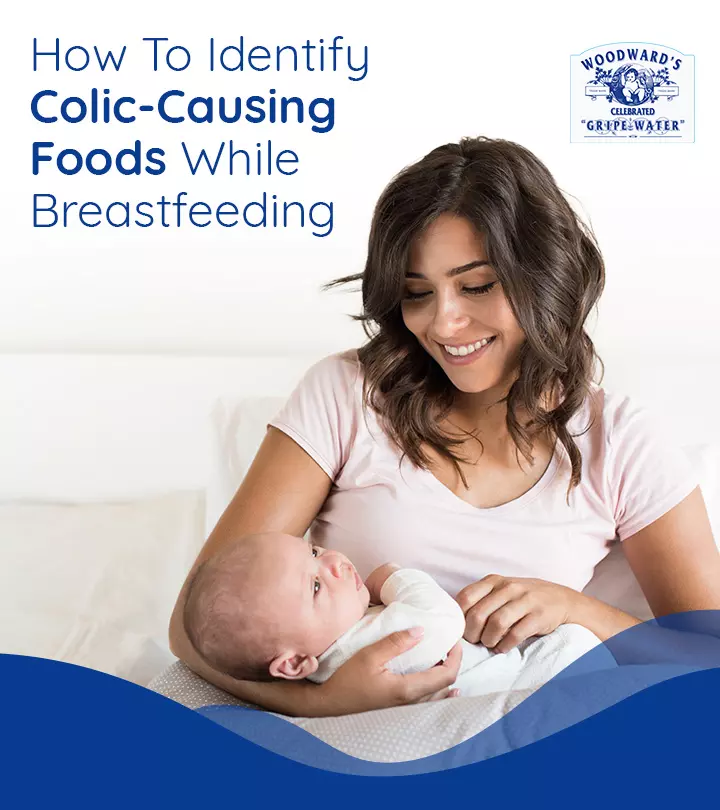

Image: Shutterstock
N. Chandra Kumar, HOD, Neonatology, Sri Kanchi Kamakoti Child Trust Hospital, Chennai explains that FOS has been shown to help ease constipation symptoms in infants and children and shares some of the studies on the same
Fructooligosaccharides (FOS) in constipation
At least 1 in 10 kids face constipation and it is among the most common reason for frequent doctor visits. (1), (2) Constipation is when the baby has lesser than 2 bowel movements a week and has stools that are hard to pass causing pain. (3) In most cases, the symptoms begin at 1 year of age and it is a source of intense discomfort and high healthcare cost. While constipation in adults is due to a faulty lifestyle; among infants and children, early introduction of solid foods and stopping breastfeeding could be the reasons. (4)
The role of good fibre FOS for children
FOS or fructooligosaccharides are food for good bacteria They are naturally present in plants such as banana, apple, honey, asparagus artichokes and others (5). FOS is made of 2 to 60 fructose units linked by β (2-1) bonds which are not digestible by humans. In addition to this, FOS is water soluble. This gives FOS a soluble fiber-like quality which is one of the ways by which it helps in relieving constipation.
FOS, by escaping enzymatic digestion, reaches the gut intact and it is here acted upon by specific bacteria such as Bifidobacteria and Lactobacilli. In addition to this, FOS suppresses the growth of potentially pathogenic bacteria in the gut. (5) Studies among constipated children identify dysbiosis or an imbalance in the gut bacteria – lower counts of Lactobacilli – as one of the reasons for constipation. (6)
Mechanisms by which FOS can relieve constipation
FOS being water soluble might help to ease constipation in 3 possible ways: (5)
- Increasing the water content of stools by retaining moisture. This makes the stools soft and easier to pass
- Increasing the counts of good bacteria in the gut again helps in retaining more water in the stools
- Fermentation of FOS helps release SCFA or short-chain fatty acids. These again help in retaining water making stools soft and improving motility.
Studies supplementing FOS among infants for 4 weeks found that they had higher counts of Bifidobacteria in their stools and the transit time of the stools was also short. The children also showed significant improvement in constipation symptoms. 4 Another study noted that supplementation with FOS helped reduce constipation symptoms. (7)
Takeaway points
FOS has been shown to help ease constipation symptoms in infants and children. Softer stools also mean reduced pain during defecation. While FOS is a good option, eating a fiber-rich diet should be encouraged. Doing so would mean naturally providing FOS in the child’s diet.
References
- Loening-Baucke V. Prevalence, symptoms and outcome of constipation in infants and toddlers. J Pediatr. 2005 Mar;146(3):359-63. doi: 10.1016/j.jpeds.2004.10.046. PMID: 15756220.
- Constipation in infants and children: Evaluation. Extract available from:
https://www.uptodate.com/contents/constipation-in-infants-and-children-evaluation. Accessed on: 19 December 2022. - NIH. Definition & Facts for Constipation in Children. Available from:
https://www.niddk.nih.gov/health-information/digestive-diseases/constipation-children/definition-facts. Accessed on: 21 February 2023 - Souza DDS, Tahan S, Weber TK, Araujo-Filho HB, de Morais MB. Randomized, Double-Blind, Placebo-Controlled Parallel Clinical Trial Assessing the Effect of Fructooligosaccharides in Infants with Constipation. Nutrients. 2018 Nov 1;10(11):1602.
- Sabater-Molina M, Larqué E, Torrella F, Zamora S. Dietary fructooligosaccharides and potential benefits on health. J Physiol Biochem. 2009 Sep;65(3):315-28. doi: 10.1007/BF03180584. PMID: 20119826.
- de Moraes JG, Motta ME, Beltrão MF, Salviano TL, da Silva GA. Fecal Microbiota and Diet of Children with Chronic Constipation. Int J Pediatr. 2016;2016:6787269. doi: 10.1155/2016/6787269. Epub 2016 Jun 23. PMID: 27418934; PMCID: PMC4935906.
- Toporovski MS, de Morais MB, Abuhab A, Crippa Júnior MA. Effect of Polydextrose/Fructooligosaccharide Mixture on Constipation Symptoms in Children Aged 4 to 8 Years. Nutrients. 2021 May 13;13(5):1634. doi: 10.3390/nu13051634. PMID: 34067961; PMCID: PMC8152261.
Disclaimer: This article was originally published on Express Healthcare. MomJunction has reposted the article with only the title and image changed.
Community Experiences
Join the conversation and become a part of our nurturing community! Share your stories, experiences, and insights to connect with fellow parents.












